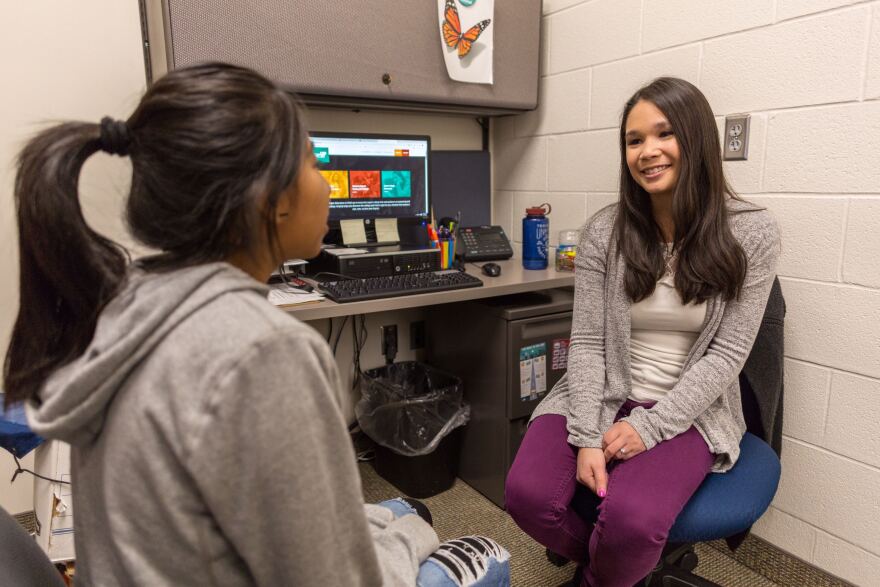The Utah System of Higher Education has kicked off an effort to put college advisors in the state’s approximately 150 public high schools by the 2021-22 school year.
The University of Utah’s Utah College Advising Corps previously had 12 college advisors at 11 Salt Lake County schools and one Washington County school. Starting Thursday, 22 new college advisors will start working in schools in Weber, Davis, Utah and Washington counties for a total of 34 college advisors across the state.
The roughly three-dozen advisors will work at the high schools full-time throughout the school year. They are recent college grads who will supplement the work that high school counselors already do to educate students on how to access college. The advisors can help students apply for college, financial aid and scholarships and register students for entrance exams. They can also help students assess whether a traditional two-year or four-year college program, technical school or certificate program will be the best fit for them.

Nicole Batt, director of the college advising corps, said the entire college process can be tricky to navigate for some students.
“I think all students in Utah deserve to go to college,” she said. “They deserve to be able to meet their goals.”
Since 2007, the advising corps has been helping students navigate through barriers as they start their college journey.
The program previously was open to all high school students, but focused on helping students from under-represented backgrounds, first-generation college students or low-income students, Batt said. The next step is for advisors to try to reach out to 70% of each school’s senior class.
State education officials have found that one out three Utah high school graduates don’t enroll in college within five years. But one meeting with a college access advisor increases a student’s likelihood of college attainment by 13%.
Utah’s Board of Regents has identified access to college as a top priority to ensure that the state has the workforce it will need for the jobs of the future and as Utah’s population demographics continue to diversify.
“We know that enrollment gaps exist between white and non-white populations,” said Melanie Heath, an assistant commissioner for the Utah System of Higher Education. “As our state’s demographics change, we know that gap will only grow if we don’t do something about it.”
The effort to add a college advisor in all Utah high schools is expected to cost about $7 million in total. The Office of Commissioner of Higher Education reallocated $1 million to fund the first phase of the expansion. The Board of Regents will ask the Utah Legislature for $6 million to fund the second and third phase of the program, Heath said.

